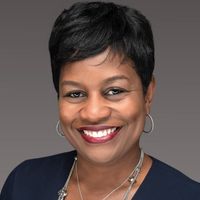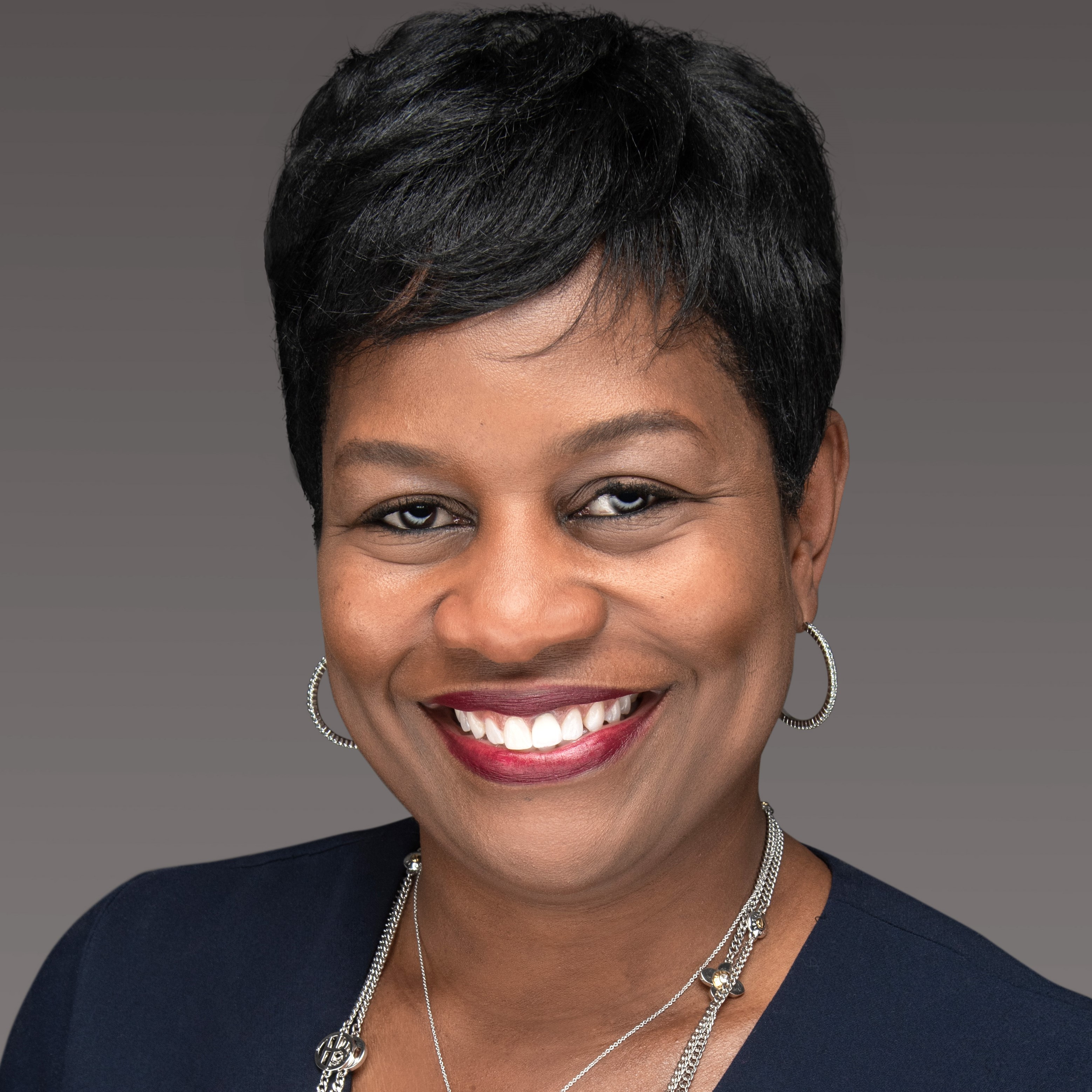Inflation’s Toll: Cuts to Retirement Savings and Health Care
Many consumers struggling to make ends meet amid inflation are reducing retirement planning and health care, both of which can have disastrous results later in life. A professional could help.


Profit and prosper with the best of Kiplinger's advice on investing, taxes, retirement, personal finance and much more. Delivered daily. Enter your email in the box and click Sign Me Up.
You are now subscribed
Your newsletter sign-up was successful
Want to add more newsletters?

Delivered daily
Kiplinger Today
Profit and prosper with the best of Kiplinger's advice on investing, taxes, retirement, personal finance and much more delivered daily. Smart money moves start here.

Sent five days a week
Kiplinger A Step Ahead
Get practical help to make better financial decisions in your everyday life, from spending to savings on top deals.

Delivered daily
Kiplinger Closing Bell
Get today's biggest financial and investing headlines delivered to your inbox every day the U.S. stock market is open.

Sent twice a week
Kiplinger Adviser Intel
Financial pros across the country share best practices and fresh tactics to preserve and grow your wealth.

Delivered weekly
Kiplinger Tax Tips
Trim your federal and state tax bills with practical tax-planning and tax-cutting strategies.

Sent twice a week
Kiplinger Retirement Tips
Your twice-a-week guide to planning and enjoying a financially secure and richly rewarding retirement

Sent bimonthly.
Kiplinger Adviser Angle
Insights for advisers, wealth managers and other financial professionals.

Sent twice a week
Kiplinger Investing Weekly
Your twice-a-week roundup of promising stocks, funds, companies and industries you should consider, ones you should avoid, and why.

Sent weekly for six weeks
Kiplinger Invest for Retirement
Your step-by-step six-part series on how to invest for retirement, from devising a successful strategy to exactly which investments to choose.
Despite several interest rate hikes and another on the horizon, the Federal Reserve has yet to meaningfully curb inflation, leaving Americans struggling with record-high prices for essential items such as gasoline, groceries and health care. And as costs for necessities continue to increase, many people have been forced to make tough decisions that sacrifice their health and well-being.
A Nationwide Retirement Institute survey(1) of 1,140 adults shows that over the past 12 months, nearly one in five American households (17%) received food or goods from a food bank (22% for Millennials), and the same amount stopped buying healthier foods (organic or high-priced healthy foods). Nearly one in five Americans (18%) say they skipped meals or didn’t buy groceries due to high inflation (including 28% of Gen Z and 23% of Millennials).
A recent Federal Reserve report finds that consumers are also taking on more credit card debt just to pay for everyday expenses. Depleted savings and skyrocketing costs have many middle- and lower-income Americans living in a precarious financial situation and in need of help, which is particularly concerning as most signs point to a recession in 2023.
From just $107.88 $24.99 for Kiplinger Personal Finance
Become a smarter, better informed investor. Subscribe from just $107.88 $24.99, plus get up to 4 Special Issues

Sign up for Kiplinger’s Free Newsletters
Profit and prosper with the best of expert advice on investing, taxes, retirement, personal finance and more - straight to your e-mail.
Profit and prosper with the best of expert advice - straight to your e-mail.
While food insecurity deepens, too many Americans are also struggling to pay for critical health care expenses. Our survey also reveals many people have canceled or postponed plans in the past 12 months to see a specialist (14%), take a prescribed medication (10%) or get an annual physical (11%) due to high inflation.
Inflation Can Affect Mental Health, Too
High inflation can also take a toll on mental health as we know that a top stressor for many individuals is finances. Because people’s financial, physical and mental health are all connected, it is imperative that Americans are receiving the care they need in a time like this, instead of canceling or postponing plans to see a mental health professional, as almost one-fifth of Gen Z (17%) and Millennials (19%) have done in the past year.
Despite squeezing every penny, half of Americans (49%) say their health care expenses have gone up this year – with no relief expected anytime soon. A third (32%) worry their monthly health care premium will increase, and 40% expect their prescription drug costs will increase.
However, less than a fifth of Americans (17%) have adjusted their family’s budget to pay for health care expenses in the past 12 months, and 14% say they are considering downgrading their health insurance plan because of high inflation (23% Gen Z, 20% Millennials).
It’s important that Americans leverage all resources available. However, our survey finds while half of employed adults (49%) have access to a health savings account (HSA) through their employer, only 30% who do contribute to one. Of those who do use HSAs, just 33% maximize the triple tax benefits by using their HSA as a long-term savings vehicle for future health care expenses in retirement.
10% Divert Funds From Retirement to Health Care
Another concerning issue is that 10% of adults have already diverted funds from retirement savings to pay for health care expenses, either by cutting contributions or by taking withdrawals from their retirement plans. Another 14% of adults are considering doing so this year. This figure is higher for Gen Z and Millennials at 21% and 20%, respectively.
It’s important to start early and keep saving for retirement – especially if your employer offers a 401(k) match. Too often, people prioritize things like buying a home or paying off student or consumer debt first before they start saving for retirement. On average, people don’t start contributing to their retirement plan until the age of 31, according to data gathered from the nearly 2.5 million defined contribution plan participants Nationwide serves. This means most are missing out on nearly a decade of savings, asset accumulation and greater compounded returns.
Remember, saving for retirement is not an all or nothing proposition. Saving something now, even if it’s just a little bit, is better than waiting until later.
According to our survey, many Americans need help making decisions to feel more secure in their daily lives and financial futures. For example, 70% of adults wish they had a better understanding of Medicare (which could save them money when selecting a plan). Similarly, 70% can’t or aren’t sure how to estimate how much they may pay for health care in retirement, and only 39% of adults have a plan to save for their retirement health care costs.
The good news is you don’t have to figure this out on your own. As Americans face continued market turbulence and an increased cost of living, now is the time to consult with a financial professional to create a plan that not only prioritizes your health care needs now, but also in retirement and helps keep you on track toward short- and long-term goals.
While consulting with a financial professional costs money, your return on this investment over the long run can be well worth the expense. Financial professionals can help with financial tools — such as health care cost estimators and Social Security calculators to better prepare you for challenges you may face in retirement and help ensure you maximize your benefits.
If Nothing Else, Focus on What You Can Control
Lastly, financial professionals can help you create a balanced portfolio and a tax-efficient income plan for retirement that can increase your ability to afford the health care services you will need later.
If a financial professional doesn’t fit your current budget, focus on what you can control. Consider cutting things like eating out, expensive vacations or entertainment before you deprioritize your 401(k) contribution, HSA or other long-term savings vehicles.
Whether you’re cutting corners on your health now, failing to plan for health care costs in the future or have a friend or loved one who is facing these challenges, the first step is putting a plan in place. A trusted financial professional can help you chart a course for better physical, mental and financial health now and in retirement.
(1) The 2022 Nationwide Retirement Institute Health Care Costs in Retirement survey was conducted online in September by The Harris Poll on behalf of Nationwide, among 1,140 adults age 18+ residing in the U.S.
NFM-22616AO
Profit and prosper with the best of Kiplinger's advice on investing, taxes, retirement, personal finance and much more. Delivered daily. Enter your email in the box and click Sign Me Up.

Kristi Martin Rodriguez currently serves as Senior Vice President of the Nationwide Retirement Institute® for Nationwide Financial, leading the teams responsible for advocating for and educating members, partners and industry leaders on issues impacting their ability to have a secure financial future. She was a founding member of the Ohio chapter of The National Association of Securities Professionals (NASP), an organization helping people of color and women achieve inclusion in the industry.
-
 Dow Adds 1,206 Points to Top 50,000: Stock Market Today
Dow Adds 1,206 Points to Top 50,000: Stock Market TodayThe S&P 500 and Nasdaq also had strong finishes to a volatile week, with beaten-down tech stocks outperforming.
-
 Ask the Tax Editor: Federal Income Tax Deductions
Ask the Tax Editor: Federal Income Tax DeductionsAsk the Editor In this week's Ask the Editor Q&A, Joy Taylor answers questions on federal income tax deductions
-
 States With No-Fault Car Insurance Laws (and How No-Fault Car Insurance Works)
States With No-Fault Car Insurance Laws (and How No-Fault Car Insurance Works)A breakdown of the confusing rules around no-fault car insurance in every state where it exists.
-
 For the 2% Club, the Guardrails Approach and the 4% Rule Do Not Work: Here's What Works Instead
For the 2% Club, the Guardrails Approach and the 4% Rule Do Not Work: Here's What Works InsteadFor retirees with a pension, traditional withdrawal rules could be too restrictive. You need a tailored income plan that is much more flexible and realistic.
-
 Retiring Next Year? Now Is the Time to Start Designing What Your Retirement Will Look Like
Retiring Next Year? Now Is the Time to Start Designing What Your Retirement Will Look LikeThis is when you should be shifting your focus from growing your portfolio to designing an income and tax strategy that aligns your resources with your purpose.
-
 I'm a Financial Planner: This Layered Approach for Your Retirement Money Can Help Lower Your Stress
I'm a Financial Planner: This Layered Approach for Your Retirement Money Can Help Lower Your StressTo be confident about retirement, consider building a safety net by dividing assets into distinct layers and establishing a regular review process. Here's how.
-
 The 4 Estate Planning Documents Every High-Net-Worth Family Needs (Not Just a Will)
The 4 Estate Planning Documents Every High-Net-Worth Family Needs (Not Just a Will)The key to successful estate planning for HNW families isn't just drafting these four documents, but ensuring they're current and immediately accessible.
-
 Love and Legacy: What Couples Rarely Talk About (But Should)
Love and Legacy: What Couples Rarely Talk About (But Should)Couples who talk openly about finances, including estate planning, are more likely to head into retirement joyfully. How can you get the conversation going?
-
 How to Get the Fair Value for Your Shares When You Are in the Minority Vote on a Sale of Substantially All Corporate Assets
How to Get the Fair Value for Your Shares When You Are in the Minority Vote on a Sale of Substantially All Corporate AssetsWhen a sale of substantially all corporate assets is approved by majority vote, shareholders on the losing side of the vote should understand their rights.
-
 How to Add a Pet Trust to Your Estate Plan: Don't Leave Your Best Friend to Chance
How to Add a Pet Trust to Your Estate Plan: Don't Leave Your Best Friend to ChanceAdding a pet trust to your estate plan can ensure your pets are properly looked after when you're no longer able to care for them. This is how to go about it.
-
 Want to Avoid Leaving Chaos in Your Wake? Don't Leave Behind an Outdated Estate Plan
Want to Avoid Leaving Chaos in Your Wake? Don't Leave Behind an Outdated Estate PlanAn outdated or incomplete estate plan could cause confusion for those handling your affairs at a difficult time. This guide highlights what to update and when.